Japan Calendar 2025 - List of Public Holidays, Festivals, Observances, and Celebrations
Overview - Holidays and Observances in Japan 2025
In 2025, Japan will observe 16 national holidays, offering numerous opportunities for both residents and visitors to experience the country's rich cultural traditions. Thanks to the Happy Monday System, which shifts certain holidays to Mondays, several of these holidays create extended three-day weekends. Notable long weekends in 2025 include:
-
Coming of Age Day on January 13 (Monday)
-
Marine Day on July 21 (Monday)
-
Respect for the Aged Day on September 15 (Monday)
-
Sports Day on October 13 (Monday)
Additionally, the Golden Week holiday period from April 29 to May 6 provides an extended break, although it includes weekdays that are not public holidays. These extended weekends present perfect opportunities to explore Japan's festivals, historical sites, and natural beauty.
June and December (2025) are the only months without a national holiday.
► Download Holidays and Observances in Japan 2025 PDF file Here!
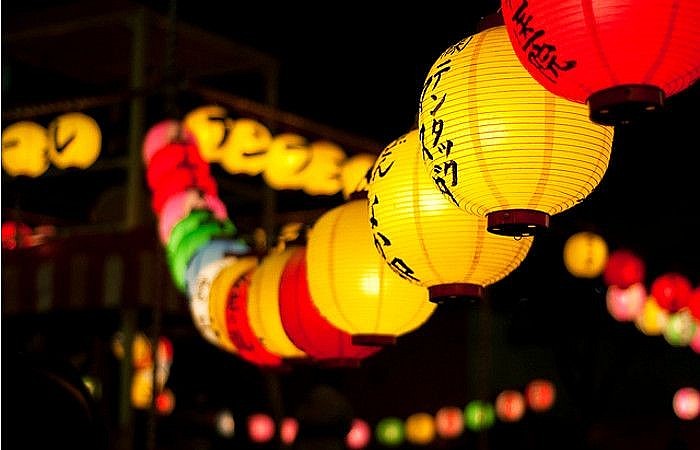 |
| Public holidays in Japan 2025 |
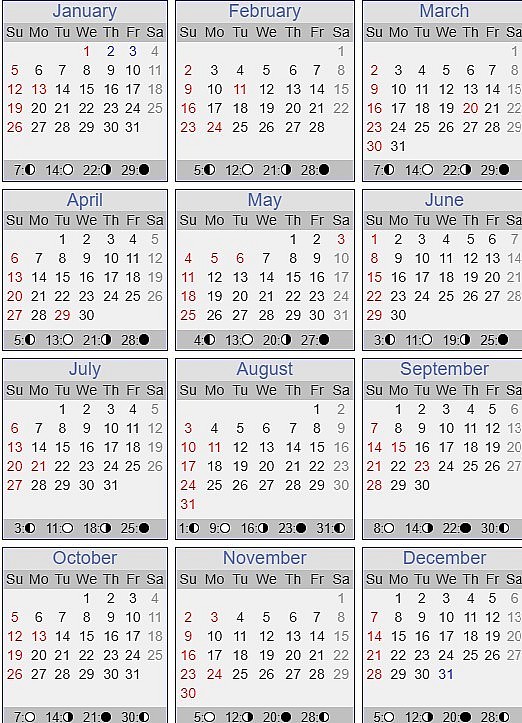 |
| Japanese Calendar for Year 2025 |
Holidays and Observances in Japan 2025: Dates and Celebrations
Note:
• 22 September is declared a holiday creating "Silver Week" if Respect for the aged day falls on September 21 and Autumnal Equinox falls on September 23.
• Except for New Year's Day, if a holiday falls on a Sunday, the next day is handled as a holiday instead.
New Year’s Day – January 1
Companies and Japanese schools usually treat the last three weekdays of the year as holidays. January 3rd, too, is observed by most as a holiday within the sanganichi, the first three days of the New Year.
In the Gregorian calendar, New Year's Day is the first day of the year; it falls precisely one week following the Christmas Day of the year.
Except for Israel, New Year's Day is a public holiday observed in all nations using the Gregorian calendar. This qualifies this as the most often observed public holiday worldwide.
Traditionally, it is observed with firework displays all around the world at 00:00 in local time zones.
Families get together to see in the new year and companies close from January 1st to January 3rd. Beginning in 15th century Japan, people throw bōnenkai drinking parties, sometimes known as "forgetting parties," which represent leaving behind last year's troubles and starting anew.
Coming of Age Day – January 8 (2nd Monday in January)
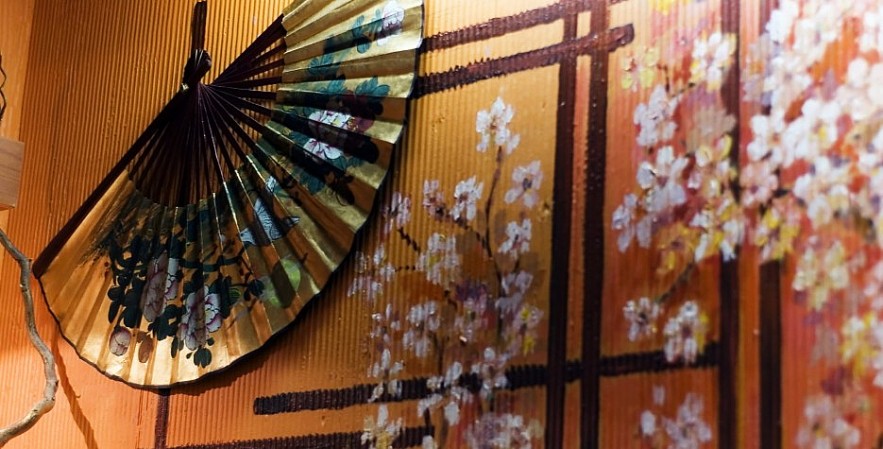 |
| Coming-of-Age Day in Japan in 2025 |
Public holidays in Japan observed on the second Monday in January are the Coming-of- Age Festival (Seijin no Hi). It celebrated on January 15th until 1999.
Often known as " Adult Day, the day honors young Japanese who will turn majority at any point during the 12 months following the beginning of April in the previous year.
Usually honoring the "new adults," local governments conduct a seijin shiki (adult ceremony). Local city offices all around Japan schedule the ceremony in the morning of the national holiday. Those who turn twenty during the present academic year—which runs from April 2nd to April 1st the next year—are invited to come. Heads of local government and guest speakers from different backgrounds speak during the ceremony, and the new adults receive small gifts.
Unlike mature, married women who wear kimonos with shorter sleeve lengths, women honor the day by dressing in special kimonos in which the sleeves are long. Some women will also sport baggy pants called hakama.
Foundation Day – February 11 (observed on February 12)
National Foundation Day (Kenkokukinen-no-Hi) is a national holiday in Japan that serves as a reminder of the nation's founding and a chance to cultivate a sense of patriotism.
It commemorates the conventional date on which Emperor Jimmu established Japan in 660 BC, as per legend.
Tourist attractions and public transportation are typically more congested during public holidays. Hotels may impose a holiday pricing premium of up to 50% on their standard rates.
Typically, a national holiday in a country is marked by a significant amount of patriotism and pomp. On National Foundation Day, the approach is somewhat unconventional. To begin with, many individuals believe that the date is so mythical that it is difficult to connect with it. Secondly, a significant number of individuals believe that the original holiday was established to promote the Emperor, which directly contributed to the mindset that would ultimately lead to Japan's catastrophic involvement in the Second World War.
Japanese Emperor’s birthday – February 23
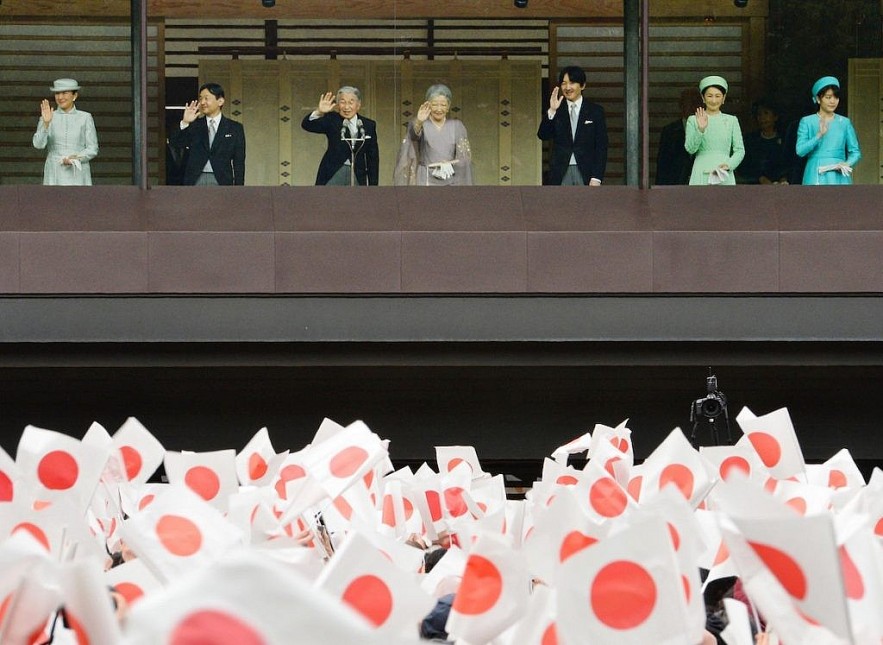 |
| Celebrate the Emperor of Japan’s Birthday With a Holiday |
Known as 'Tennou Tanjyobi', this holiday is commemorated on the birthday of the current emperor. Consequently, the national holiday will be equivalent to the birthday of the new emperor in the event of a change in the emperor.
From 1989 to 2018, the holiday was observed on December 23, in honor of Emperor Akihito's birthday. Akihito became the first living monarch to relinquish the Chrysanthemum throne in nearly 200 years in April 2019.
From 2020, the Emperor's Birthday holiday will be observed on February 23, the birthday of his successor, Emperor Naruhito, during the current Reiwa period. This period commences upon the ascension of a new Emperor to the crown.
It is customary for the emperor, empress, and the rest of the imperial family to make approximately three appearances on the veranda of the Chowaden hall in the East Gardens of the Imperial Palace on the day of the emperor's born.
The Imperial Palace in Chiyoda is only accessible to general visitors during the Emperor's birthday and New Year. Once in the morning and once in the afternoon, the Emperor would descend from a balcony to greet the audience that had assembled within the park.
Vernal Equinox Day – March 20
The commencement of astronomical spring is signified by the vernal equinox (or spring equinox). It is a national holiday in Japan.
It transpires in the Northern Hemisphere during March and in the Southern Hemisphere during September. It typically occurs on March 20th or 21st.
In Japan, the vernal equinox ('Shunbun no Hi') is a welcomed holiday that signifies the conclusion of winter and the onset of spring.
The kanji character for "spring" is "shun 春," while "bun 分" is the kanji character for "to divide."
The vernal equinox in one hemisphere coincides with the autumnal equinox in the other.
Historically, the equinoxes were a time to honor ancestors, and the Vernal and Autumnal equinoxes were observed as holidays in Shinto to pay tribute to former members of the imperial family.
Part of the post-war reforms that transformed religious holidays into secular holidays was the conversion of the holiday to its current form in 1948. The purpose of the day is to commemorate the appreciation of living organisms and the beauty of nature.
The equinox is still celebrated in modern Japan through the attendance of family reunions and the visitation of family graves, which are traditional customs.
Showa Day – April 29
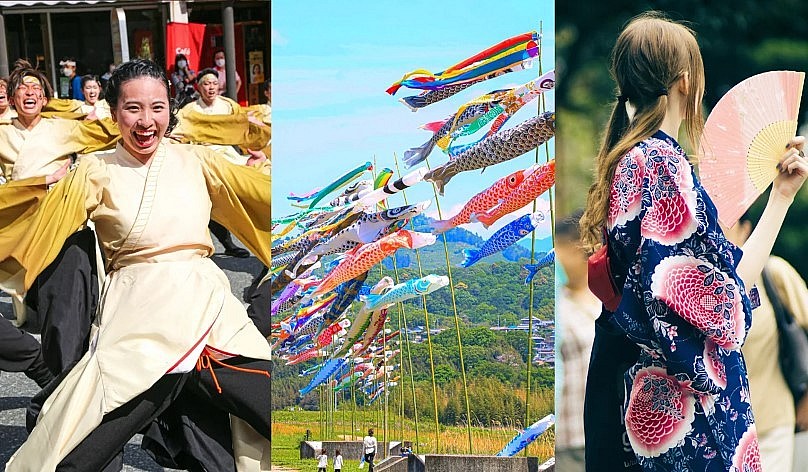 |
| Golden Week in Japan |
Unless April 29th falls on a Sunday, Showa Day is a public holiday observed in Japan. Part of Golden Week, known in Japan as "Shōwa no Hi,"
The holiday's official goal is to consider the future of Japan and honor its Showa period when the country rebuilt following turbulent times.
Showa Day celebrates the birthday of Emperor Hirohito, the reigning Emperor prior, during, and following World War II (from 1926 to 1989).
First holiday of Golden Week is Showa Day. Four national holidays fall within seven days during the Golden Week. The days that are holidays annually based on their alignment with the two weekends either side of Golden Week. In Japan, it is now a rather busy and well-liked holiday season.
| Japan has had a lot of emperors, but the Showa Era was the longest and most exciting. Emperor Showa was the emperor who lived the longest. He ruled for 63 years and died when he was 87 years old. In fact, the Showa Era includes some of the brightest and darkest times in modern Japan. He was changed his name to Emperor Showa after he died in 1989. In the past, the Emperor's birthday was a national holiday. After Emperor Hirohito died in January 1989, April 29 was no longer celebrated as The Emperor's Birthday, but as Greenery Day, which is part of Japan's Golden Week. After many failed attempts since 2000, Greenery Day was finally given the name Shōwa Day in May 2005. The date of Greenery Day was also changed from April 29th to May 4th. |
Constitution Day – May 3
On May 3, 1947, the Constitution of Japan became law. When Japan gave up after the atomic bombings of Hiroshima and Nagasaki, the country's constitution was changed to stress pacifism and peace.
As a way to remember this event, the date is a national holiday.
A lot of newspapers and magazines put out articles about the Japanese government today. On this day only, the National Diet Building in Tokyo is also open to the public. This is where the constitution was written.
As part of Golden Week, this is a public holiday.
Greenery Day – May 4
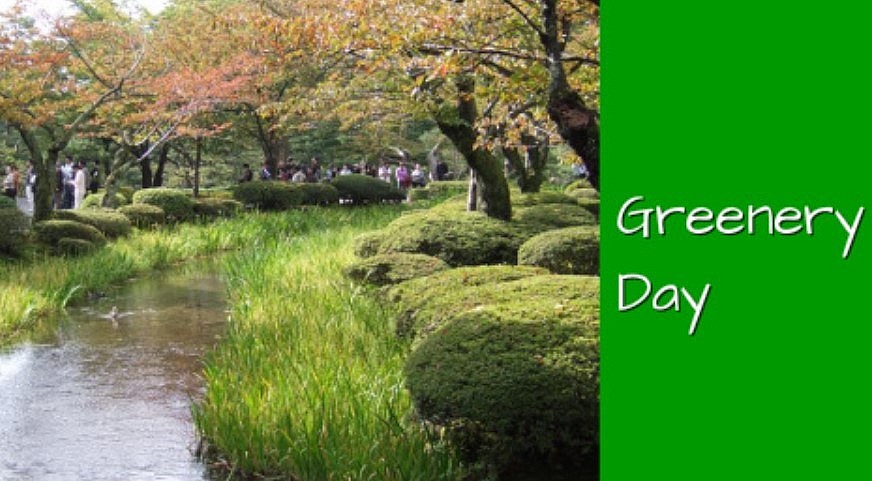 |
| Greenery Day |
This Japanese national holiday, Arbor Day or 'Midori no Hi', began as a non-holiday. This day is a holiday because it falls between Constitution Memorial Day and Children's Day, per Japanese law.
It was called 'In between day' and completed Golden Week until 2007. Showa Day replaced Greenery Day on April 29th. Before 1989, Emperor Hirohito's birthday was celebrated on April 29th. Greenery Day honors his love of plants and nature after his 1989 death.
Greenery Day uses green and blue to symbolize the close relationship between land and water, two essential elements of nature. Green became a color during the Heian period from blue.
National Land Afforestation Campaign's main event is Arbor Day. The Emperor and Empress attend.
Since 1950, the spring event has drawn participants from across Japan.
The hosting prefecture and National Land Afforestation Promotion Organization organize the festival. The festival's main events are The Emperor's greetings, The Emperor and Empress planting a tree and seeds, commemorative tree planting by prefectural and non-prefectural participants, and awards like the National Land Afforestation Promotion Organisation movement poster competition.
Children’s Day – May 5 (observed on May 6)
Golden Week's Children's Day Festival (Kodomo no Hi) is held on May 5, the fifth of the fifth. 'Kodomo' means child, 'no' means for, and 'hi' means day.
Japan declared it a national holiday in 1948, but it has been celebrated since ancient times. Tango no Sekku was traditionally a boy festival on the 5th day of the 5th month.
Koinobori (fabric carp-shaped wind sock streamers) and samurai dolls, which symbolize strength, power, and success, are displayed in families to pray for their sons' health and success.
Koinobori, colorful carp streamers, are hung outside homes to wish children strength and success. According to the Chinese myth of the carp who swims upstream through a powerful river and becomes a dragon, the carp symbolizes vitality.
 Children’s Day: History, Significance and Celebration Around the World Children’s Day: History, Significance and Celebration Around the World |
Sea Day or Marine Day – July 15 (3rd Monday in July)
Marine Day is a Monday public holiday in Japan that falls on the third Monday of July.
It is a day on which the island nation of Japan expresses its gratitude for the oceans and seas.
In 1996, Marine Day was officially recognized as a national holiday in Japan, and it is also referred to as Ocean Day, Sea Day, or 'Umi no hi'.
Celebrating it on the third Monday of July has been a tradition since 2003.
Prior to 1996, it was referred to as Marine Memorial Day and was not recognized as a national holiday.
There are no specific traditional ceremonies associated with the day, as it is a modern holiday.
Nevertheless, in honor of Marine Day, all national aquariums host special events, water sports competitions, water shows, and cultural activities that are related to the sea. Maritime Self-Defense Force ships in Japan are fully decorated with flags and banners to commemorate the event.
Marine Day is the unofficial commencement of the summer season for students, and numerous individuals utilize this summer holiday to enjoy a particularly fitting day at the beach.
Government offices will be closed, and employees in Japan will have the day off. Therefore, it is advisable to plan ahead if you have official business obligations.
Mountain Day – August 11 (observed on August 12)
'Yama no hi' is another name for Mountain Day. It is Japan's newest public holiday.
It has been held on August 11th since 2016. If August 11th falls on a Sunday, there will be no school the next Monday.
International Mountain Day is a day set aside by the UN every year on December 11.
Since it's a modern holiday, there aren't any special ceremonies that happen on that day.
Kamikochi in Matsumoto, Nagano, in the Japanese Alps was the site of the first National Ceremony for Mountain Day.
The Japan Weather Association did a poll in 2016 and found that only 68% of people knew about the new holiday. As for Marine Day, which started in 1996, almost 10% of people who answered the same poll said they did not know about it. Mountain Day will take some time to become a national holiday.
Respect for the Aged Day – September 16 (3rd Monday in September)
On the third Monday of September, Japan celebrates this national holiday.
Many communities honor their older members by throwing parties for them and giving them gifts that will make them live even longer. Volunteers bring their elderly neighbors free bento boxes for lunch.
On September 15, 1947, the mayor of Nomadani-mura (now Taka-cho) in Hyōgo Prefecture declared September 15th as "Old Folks' Day." This holiday is also known as Seniors' Day, Respect of the Aged Day, or Keiro no Hi. The mayor wanted to hold a meeting where people could listen to and learn from their elders.
Autumnal Equinox Day – September 22 (observed on September 23)
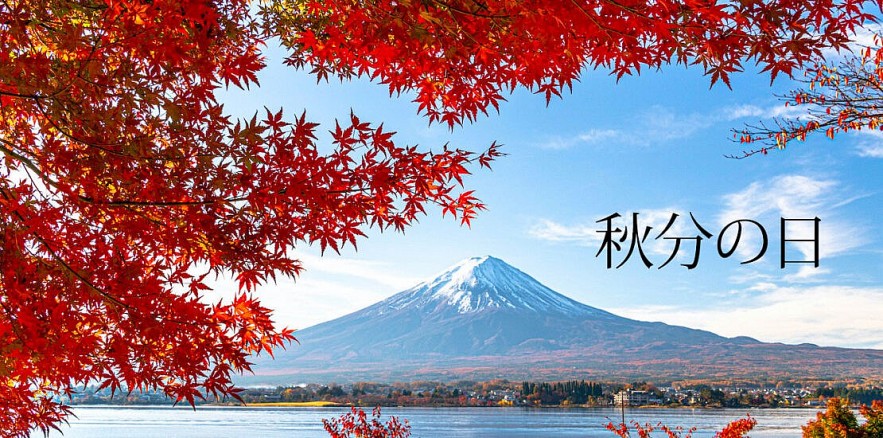 |
| Autumnal Equinox Day in Japan |
Japan has a national holiday on September 22nd, 23rd, or 24th to honor the Autumnal Equinox.
This holiday is called "Shūbun-no-hi" in Japan. Because the exact day can change based on observations of the stars, the date for the next year is usually made public in early spring.
If September 21 is Respect for the Aged Day and September 23 is the Autumnal Equinox, and either September 21 or September 23 is a Friday, then September 22 is a people's holiday (kokumin no kyuujitu), which makes "Silver Week." In 2009 and 2015, there were Silver Weeks. The next one will be in 2026.
Health And Sports Day – October 14 (2nd Monday in October)
Japan's Health and Sports Day, or "Taiiku no Hi," is on the second Monday of October.
In order to keep the mind and body healthy, the goal is to encourage sports and an active lifestyle.
This holiday was first observed in 1966. It was named after the day the Tokyo Olympics began in 1964.
In Japan, many schools, businesses, and towns hold special Sports Day events, such as the three-legged race, the beanbag toss, and tug-of-war. A traditional tune called "O-tama" is also played. In this one-of-a-kind event, people race with a very big ball.
On Health Sports Day, museums that are closed on Mondays might be open. The next day, Tuesday, they will be closed.
Culture Day – November 3 (observed on November 4)
The people you work with in Japan celebrate Culture Day every year on November 3.
If November 3rd falls on a Sunday, the public holiday will be on the following Monday.
The Ceremony for the Order of Culture Awards takes place at the Imperial Palace in Tokyo as part of Culture Day.
The awards are given to people who have done great things for Japanese culture or for society as a whole. With eight degrees, the Order of the Rising Sun has been around since 1875.
As of November 4, 2018, the award had been given to 4,214 people, including 135 foreigners (mostly Americans). One of them was Dick Cheney, who used to be Vice President of the US.
The three American astronauts on Apollo 11 and the Japanese artist Ikuo Hirayama and poet Makoto Ooka are among the people who have received it in the past.
Festivals and parades honoring traditional Japanese ways of life are held all over the rest of the country. On Culture Day, most museums in Tokyo and the rest of the country are open for free. This is a great time to learn about Japan's history and culture.
Labor Thanksgiving Day – November 23
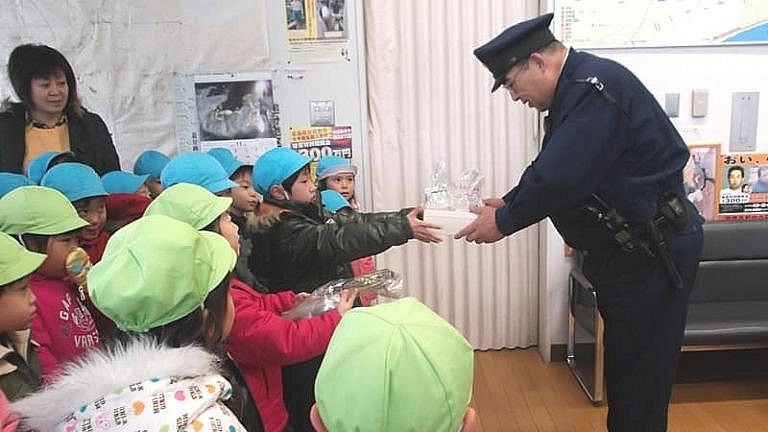 |
| Labor Thanksgiving Day in Japan: Children giving a gift to a local police officer |
Holiday held on November 23 or the Monday after if it falls on a Sunday.
The old tradition of Harvest Festival is now known as Labor Thanksgiving Day. As part of the ceremony, the Emperor gives the gods the first fresh rice of the season and then eats it himself.
Today is the day of a lot of important events. A festival of work is held every year in Nagano, Japan, which was the site of the 1998 Olympic Winter Games. This event is put on by local labor groups to get people to think about issues that affect the environment, human rights, and peace.
In the suburbs of Tokyo, kids from nursery school give drawings and crafts to the police officers who keep them safe every day.
Full List of Holidays and Observances in Japan in 2025
1 Jan New Year's Day
1 Jan January 1 Bank Holiday
2 Jan January 2 Bank Holiday
3 Jan January 3 Bank Holiday
13 Jan Coming of Age Day
3 Feb Setsubun
11 Feb National Foundation Day
14 Feb Valentine's Day
23 Feb Emperor's Birthday
24 Feb 'Emperor's Birthday' observed
3 Mar Dolls' Festival/Girls' Festival
20 Mar Spring Equinox
20 Mar March Equinox
29 Apr Shōwa Day
3 May Constitution Memorial Day
4 May Greenery Day
5 May Children's Day
6 May 'Greenery Day' observed
11 May Mother's Day
21 Jun June Solstice
7 Jul Star Festival
21 Jul Sea Day
6 Aug Hiroshima Memorial Day
9 Aug Nagasaki Memorial Day
11 Aug Mountain Day
15 Sep Respect for the Aged Day
23 Sep Autumn Equinox
23 Sep September Equinox
13 Oct Sports Day
3 Nov Culture Day
15 Nov 7-5-3 Day
23 Nov Labor Thanksgiving Day
24 Nov 'Labor Thanksgiving Day' observed
22 Dec December Solstice
25 Dec Christmas
31 Dec December 31 Bank Holiday
 Guide to Apply for MEXT - Japanese Government Scholarships For International Students Guide to Apply for MEXT - Japanese Government Scholarships For International Students Everything regarding the MEXT scholarship program offered by the Japanese government, including its terms, benefits, application process, and success advice, can be found at Knowinsiders.com. |
 Top 10 Best Hospitals In Japan for Foreigners and Citizens Top 10 Best Hospitals In Japan for Foreigners and Citizens Japan offers the best medical services in Asia. Which Japanese hospitals are the best for citizens and foreigners alike? You can read the article to ... |
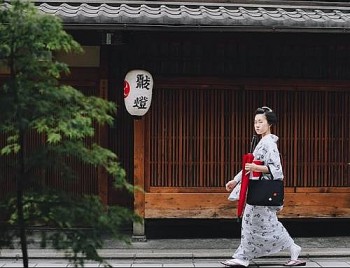 8 Japanese Life Philosophies That Can Completely Change Your Life 8 Japanese Life Philosophies That Can Completely Change Your Life Learning about eight typical Japanese life philosophies/concepts will provide us with a fresh perspective, making us feel as if we have awoken from a coma. ... |
 Who is Tadashi Yanai & Family - Richest Person in Japan: Biography, Personal Life And Net Worth Who is Tadashi Yanai & Family - Richest Person in Japan: Biography, Personal Life And Net Worth Forbes Richest People List 2024 states that Tadashi Yanai, a magnate in the retailing sector, maintained his position as the richest person in Japan this ... |
 10 Best Free Sites To Watch/Download Japanese Movies and Series 10 Best Free Sites To Watch/Download Japanese Movies and Series Japanese dramas have become favorite genre of films of many people worldwide. That's why many search for the best free sites to stream Japanese movies ... |


























